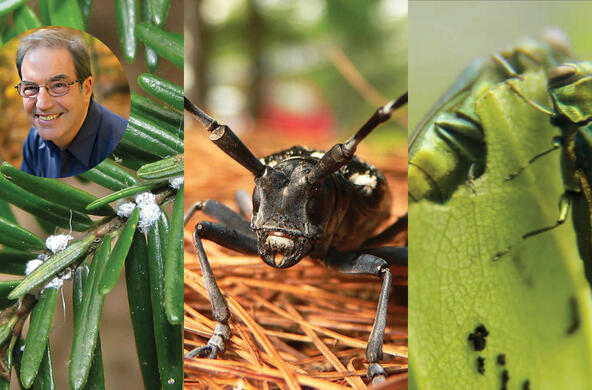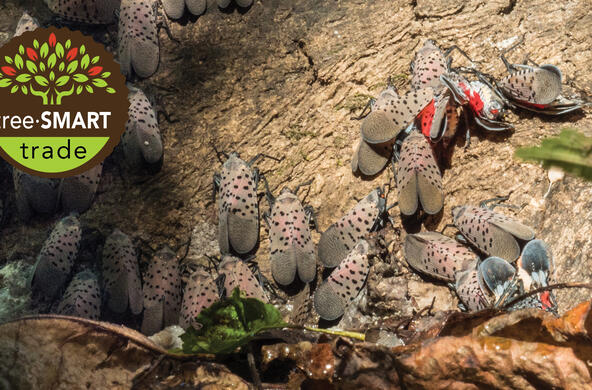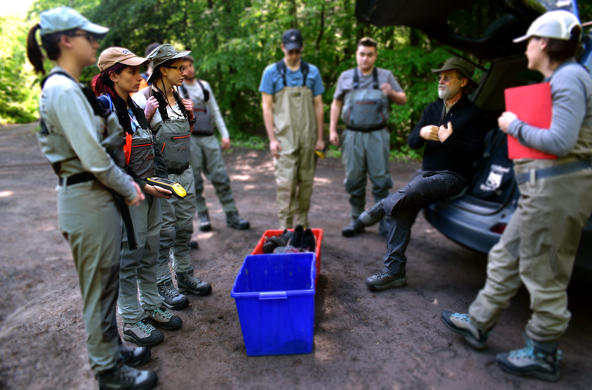Dr. Joshua R. Ginsberg, Cary Institute of Ecosystem Studies President
Dr. Richard Ostfeld
Dr. Emma Rosi
Dr. Peter Groffman
Dr. Lynn Christenson, Vassar College
Margaret Fallon, Stanford Town Board
Em Lovett
Open remembrance sharing (microphone will be passed)
You Want a Physicist to Speak at Your Funeral
Dr. Shannon LaDeau and Dr. Christopher Solomon
You want the physicist to talk to your grieving family about the conservation of energy, so they will understand that your energy has not died.
You want the physicist to remind your sobbing mother about the first law of thermodynamics; that no energy gets created in the universe, and none is destroyed.
You want your mother to know that all your energy, every vibration, every Btu of heat, every wave of every particle that was her beloved child remains with her in this world. You want the physicist to tell your weeping father that amid energies of the cosmos, you gave as good as you got.
And at one point you’d hope that the physicist would step down from the pulpit and walk to your brokenhearted spouse there in the pew and tell him that all the photons that ever bounced off your face, all the particles whose paths were interrupted by your smile, by the touch of your hair, hundreds of trillions of particles, have raced off like children, their ways forever changed by you.
And as your widow rocks in the arms of a loving family, may the physicist let her know that all the photons that bounced from you were gathered in the particle detectors that are her eyes, that those photons created within her constellations of electromagnetically charged neurons whose energy will go on forever.
And the physicist will remind the congregation of how much of all your energy is given off as heat. There may be a few fanning themselves with their programs as he says it. And he will tell him that the warmth that flowed through you in life is still here, still part of all that we are, even as we who mourn continue the heat of our own lives.
And you’ll want the physicist to explain to those who loved you that they need not have faith; indeed, they should not have faith. Let them know they can measure, that scientists have measured precisely the conservation of energy and found it accurate, verifiable and consistent across space and time.
You can hope your family will examine the evidence and satisfy themselves that the science is sound and that they’ll be comforted to know your energy’s still around. According to the law of the conservation of energy, not a bit of you is gone; you’re just less orderly.
Amen.
Aaron Freeman, NPR Commentator
Bruce Lovett and Joan Hunter
The first candle represents our grief. The pain of losing you is intense. It reminds us of the depth of our love for you. It reminds us of how many lives you have touched. And it reminds us of how quickly life can change.
This second candle represents our courage, to confront our sorrow, to comfort each other, And to adjust our lives and go on without you.
The third candle we light in your memory. For the times we laughed, the times we cried, the times we were upset with each other, and the times we triumphed. It’s for the amazing things you have done in your life, and the caring and joy you gave us.
The fourth candle we light for your gifts to the world, your dedication to science, and your tireless research. It’s for your desire to make the world a better place. It’s for the joy you found in nature and your profound belief that we are the stewards of the earth.
This fifth candle we light for our love. We light this candle so that your light will always shine. As we share this celebration of your life with our family and friends, we will cherish the special place in our hearts that will always be reserved for you. We thank you for the gift your living brought to each of us. We will always love you. We will always remember you.
The Bristlecone Pine
Way up in the mountains
On the high timberline
Lives a twisted old tree
Called the bristlecone pine
The wind there is bitter
It cuts like a knife
And it keeps that tree holding
On for dear life
But hold on it does
Standing its ground
Standing as empires
Rise and fall down
When Jesus was gathering
Lambs to his fold
This tree was already
A thousand years old
Now the way I have lived
There ain’t no way to tell
When I die if I’m going
To heaven or hell
So when I’m laid to rest
It would suit me just fine
To sleep at the feet of
The bristlecone pine
For as I would slowly
Return to the earth
What little this body
Of mine might be worth
Would soon start to nourish
The roots of that tree
And it would partake of
The essence of me
And who knows but that as
The centuries turn
A small spark of me might
Continue to burn
As long as the sun did
Continue to shine
Down on the limbs of
The bristlecone pine
Now the way I have lived
There ain’t no way to tell
When I die if I’m going
To heaven or hell
So when I’m laid to rest
It would suit me just fine
To sleep at the feet of
The bristlecone pine
To sleep at the feet of
The bristlecone pine
The Ninth Elegy (excerpt)
Joan Giurdanella
Why, if our time on earth could be
spent as laurel, its green darker than
all others, its leaves edged with
little waves (like the smile of a wind)—: then why do we
have to be human—and, avoiding destiny,
long for destiny?...
Oh not because happiness is,
that rash profit taken just prior to oncoming loss,
not out of curiousity, or to give practice to the heart,
reasons which would hold for the laurel too...
But because being here is so much, and everything
seems to need us in this fleeting world, and
strangely speaks to us. Us, the most fleeting. Once
for everything, only once. Once and no more. And we, too,
only once. Never again. But to have been here,
this once, if only this once:
to have been of the earth seems irrevocable.
Remembrance by William A. Reiners
Read by Dr. Joshua R. Ginsberg



